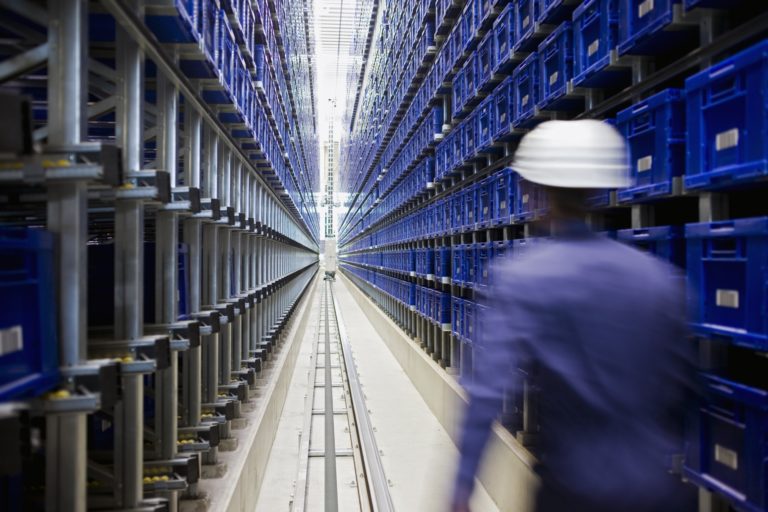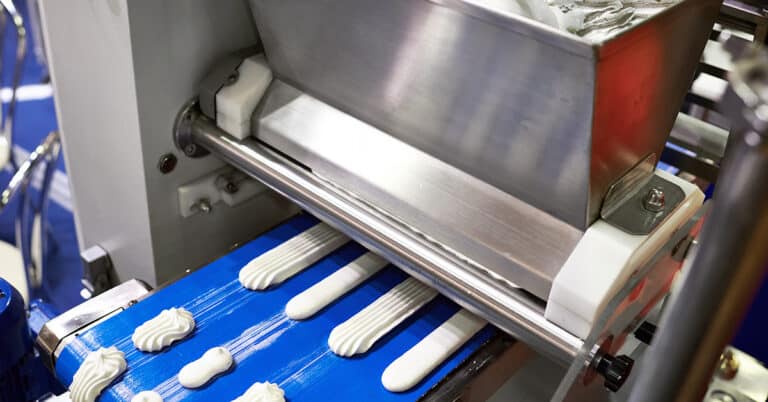The importance of the supply chain is most easily illustrated by the vast scale of the repercussions that follow when supply chain problems occur. Once the supply chain experiences challenges, manufacturers will almost immediately see higher prices, longer delivery times and extended resource time to make alternate plans and maintain customer relations.
Supply chain and logistics are two of the most critical components in manufacturing facility efficiency, cost control, reliability and overall effectiveness in meeting customer requirements. Without a reliable supply chain and logistics practice, facilities risk cost overruns, missed deadlines, inefficient maintenance and inventory management and a constant uphill battle to maintain control over processes.
Supply chain digital transformation — driven by Industry 4.0 and smart factory technology — is one of the most effective tools being wielded by manufacturers to take control over the supply chain, manage risk and ultimately maintain more control over productivity and efficiency. The “smart supply chain” — a concept powered by the data, communication, and analytics that Industry 4.0 enables — must be the new normal for any business that intends to be proactive and competitive in today’s manufacturing landscape.
Digital transformation in logistics and supply chain
Digital transformation in logistics and supply chain areas is a key manifestation of Industry 4.0 developments. Technologies and processes that are part of supply chain Industry 4.0 include:
- Advanced analytics: Supply chain and the smart factory make use of data and analytics, facilitating more informed decision-making through in-depth data analysis and real-time access to information, producing more effective inventory management, ordering, planning, forecasting and more. Sensors and data analysis tools allow for increased accuracy and insights into underlying trends, metrics and more.
- Sensor technology: Industrial sensors are a key component of Industry 4.0, enabling constant, real-time data collection and communication with other machines, as well as centralized data and analytics repositories. By introducing sensor technology into supply chain, procurement and inventory processes, your business will be well on the way to a fully realized Industry 4.0 implementation.
- Smart procurement and warehousing: Sensor technology and data analytics can work hand-in-hand with AI and machine learning processes to enable smart procurement and warehousing — the practice of monitoring and analyzing inventory, ordering, fulfillment, and vendors in real-time and making decisions based on current scenarios and information. With all these factors working together, ordering and inventory management processes become vastly more efficient.
- Smart spare parts management: It is all too often the case in manufacturing that the right spare part is not available when needed and that parts not needed sit and gather dust in the warehouse or storeroom for weeks, months or years. Neither of these scenarios is an efficient process, and both can lead to increased costs, longer wait times for maintenance and an overall resistance against streamlined maintenance practices. Industry 4.0 enables far more efficient inventory management and planning, enabling true just-in-time ordering while ensuring that equipment uptime meets the expected metrics.
- Automated logistics operations: With the vast amounts of data collected through industrial sensors, the smart supply chain facility can incorporate automated logistics processes, with decision-making and ordering achieved through AI and machine learning technology.
Supply chain and the smart factory
Industry 4.0 and smart manufacturing technologies are playing a critical role in supply chain and logistical advancements. By incorporating truly real-time data at a large scale, along with communications and analytics technology, facilities can analyze, monitor and predict processes with ever-increasing precision, helping to meet production goals, stay efficient, order more accurately and make the best use of available space and resources.
These technologies help to rethink the traditional cycle of locked-in supply chain partners and processes, introducing a higher degree of control, insight, knowledge and accuracy into this historically opaque and staid area.

Benefits of smart supply chains
The benefits of implementing a supply chain management system include:
- The ability to predict bottlenecks with analytics: Smart supply chain technology enables equipment operators, analysts or production managers to use analytics in a proactive manner, more accurately predicting impending bottlenecks and other delays based on underlying production factors, trends and scenarios. The more data collected, the more accurate this forecasting becomes. By predicting these scenarios ahead of time, managers and operators are better able to respond to them by diverting processes, addressing needs and taking other necessary steps well before they become a pressing need.
- Greater sustainability and smaller environmental impact: Stale inventory and waste are among the two biggest productivity and efficiency killers in manufacturing. By reducing the amount of inventory on hand — and more important, reducing the amount of inventory lost or discarded — smart supply chain processes help manufacturers become more sustainable, reducing their environmental footprint with the added benefit of increased efficiency.
- Improved workforce safety: With the ability to predict and detect failure modes at a very early stage, Industry 4.0 technology helps to improve workforce safety by vastly reducing unexpected equipment malfunction. This technology also reduces the need for maintenance — which can be dangerous and unpredictable — further increasing the safety levels for employees.
By understanding these points and processes, you understand the benefits that industrial sensors and other Industry 4.0 technology can introduce to your manufacturing facility. ATS features in-depth expertise and knowledge of these technologies, applying cutting-edge innovation and highly skilled personnel for MRO supply chain management, predictive maintenance and inventory management, to name a few crucial tasks. To learn more, contact us today.






